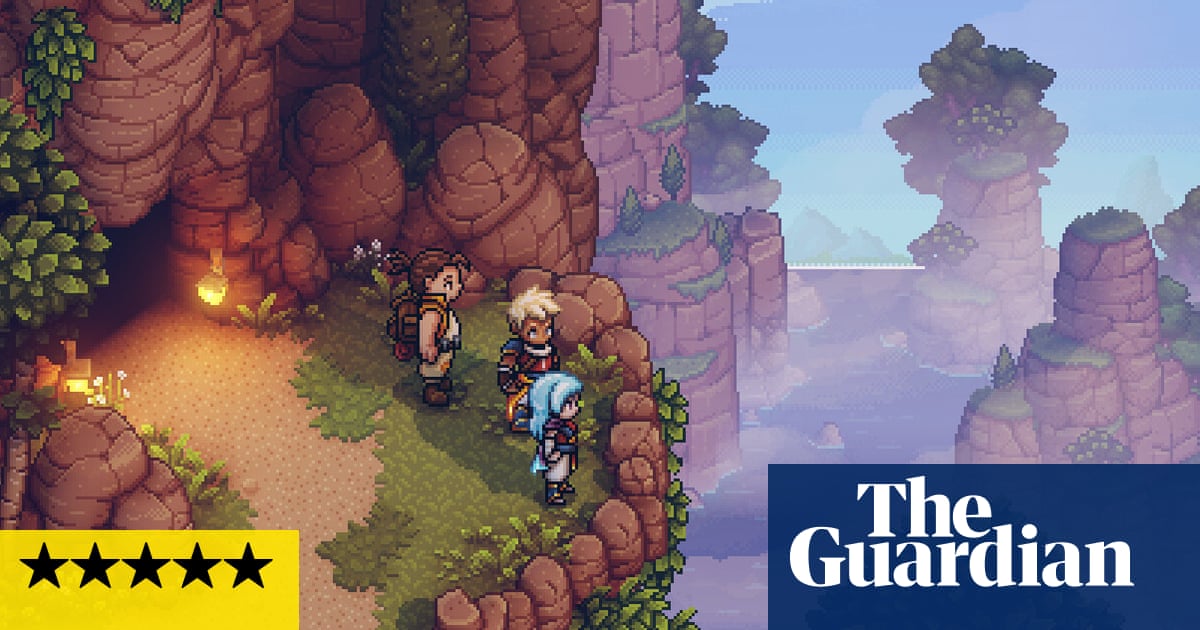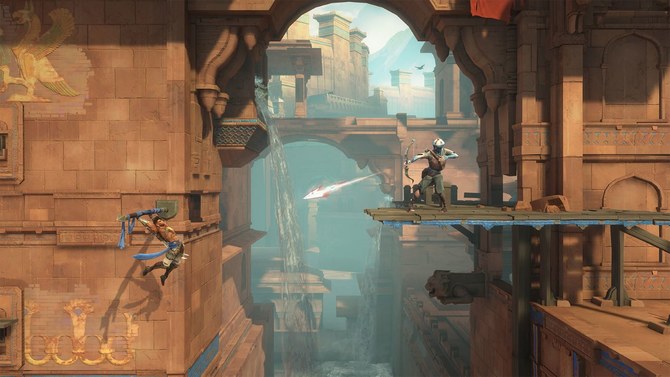
There is more than a little of Chrono Trigger and the early Final Fantasy games in Sea of Stars, setting expectations that are both high and highly specific. This game is a clear reflection of its classic Japanese RPG influences, artfully pixellated like some late, lost classic of the Super Nintendo era. It opens with a story told in dense, fabulist prose by a mysterious figure, then introduces us to a pair of elementally opposed teenage heroes, Zale and Valere, supported by their lesser-destinied but charismatic friend, Garl.
Then the game picks up its stride. The cast widens, and things deepen and change. There is a lot more beneath the surface here than may first appear.
After a purple-y beginning, the prose and writing in the game really blossoms (if you can ignore all the comma splices). Not only is the dialogue bright and natural, but the storytelling and narrative design are outstanding. It introduces character after character, but their emotional beats don’t feel laboured. The story is full of surprises, though it is at times staggered by fetch-quests, and there was no area of the map I didn’t enjoy. If there was a MacGuffin for me to seek out, I was happy to do so – the combat and the world were both so lively that I was in no hurry to move the story along. An important technical detail players will appreciate is characters’ quick walking speed: we move at a smooth clip through this world, making it all the more delightful to explore.
Turn-based battles operate smoothly, and become more varied over time. Players can strike out with magic then recharge using physical attacks, which generate mana that heightens the power of the next character’s attacks. It all works in harmony, lifted further by a rhythmic component reminiscent of Super Mario RPG or the Paper Mario games. The style of these battles is another signal that Sea of Stars is a game that absolutely loves its genre, and has picked the best parts of the classics to combine into something original.
The maps are a real achievement; the last time I saw this level of compelling detail drawn out in pixels was in Pixpil’s Eastward. Each vignette and area is rendered and lit with real consideration. Sea of Stars does not use its art style for nostalgia alone: the world feels rich and alive. Every area is almost a puzzle in itself, laid out like an unfolding diorama, full of places to jump towards and little walkways to creep down. It invites exploration and curiosity. Sometimes all that detail and good design is hidden a little too effectively under a patina of atmospheric darkness, however – a shame when there is such beauty beneath the shadows.
Many good RPGs of late have eschewed melodic soundtracks for a more ambient route, but Sea of Stars is full of great tunes. The battle music in particular is both enlivening and nostalgic, and changes ever so slightly from area to area. This attention to detail is what makes the game such a fabulous way to while away end-of-summer evenings. There are pirates and curses, necromancers and spies; there are moonbeam boomerangs, and stealthy stabbings through green portals in the air. Sea of Stars is no shallow mirror of RPGs past. Its depth and sparkle make it a modern classic in its own right.












